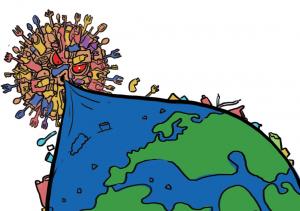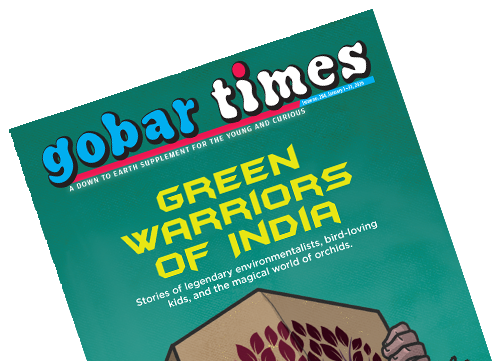
Meet the future of packaging—bioplastics, seaweed, mushrooms, and more! Nature’s own materials are here to replace plastic’s toxic inconvenience.

Unwrapping the hidden cost: How junk food packaging chokes our streets, soils our Earth and demands urgent action

Plastic pollution creates an evolutionary trap for young sea turtles, says a new study. The study is done by researchers from the University of Exeter, UK. The study included 121 sea turtles from five of the world’s seven species: green, loggerhead, hawksbill, olive ridley, and flatback. They found plastic inside juvenile turtles along both the east and west coasts of Australia. Sea turtles usually hatch on beaches and spent their early years traveling on ocean currents...

What are Micro-Plastics? Micro-plastics have not been defined in particular. They are just tiny particles that result from the disintegration of bigger plastic materials. However, most researchers say that any plastic smaller than 5 millimetres in size is a micro-plastic. Hence, these are really, really teeny-tiny! Plastics are made up of polymers, which are derived from fossil fuels. A whole lot of chemicals are added to the polymers—close to 10,000—to ensure that a given plastic has the desired properties...

Dr Rajagopalan Vasudevan proves how even an individual effort can clean the face of our country, as he invents new ways to reuse plastic for roads and buildings. One day, a professor of Chemistry was watching TV. He saw a doctor blaming plastic for water pollution. This set him wondering—how can plastic cause pollution when it is chemically a hydrocarbon and insoluble in water! The doctor was of course mistaken but his concern was genuine: plastic is an environmental nuisance. Polybags have infested our marketplaces, are swallowed by cattle, clog drains, choke ponds…

A walk on the beach is an insight not just into our leisure but also into our addiction to plastic. More than 80 lakh tonnes of plastic is dumped into the oceans every year. Sea creatures often mistake plastic for food and die because of it. Sea turtles are probably the most gullible creatures of the sea. Why? Well, that’s because they are likely to confuse plastic floating in the ocean for food and eat it, says a recent article published in the Science News magazine. However, in the poor creature’s defense, they are not the ones filling our oceans with plastic...

We have evolved over crores of years and invented plastic items and materials along the way to make our lives easier. Some of these have become a threat to life on Earth today

Can leaves be a better alternative to plastic plates that are non-biodegradable? Read on to find what lesson the character learnt in the story!

